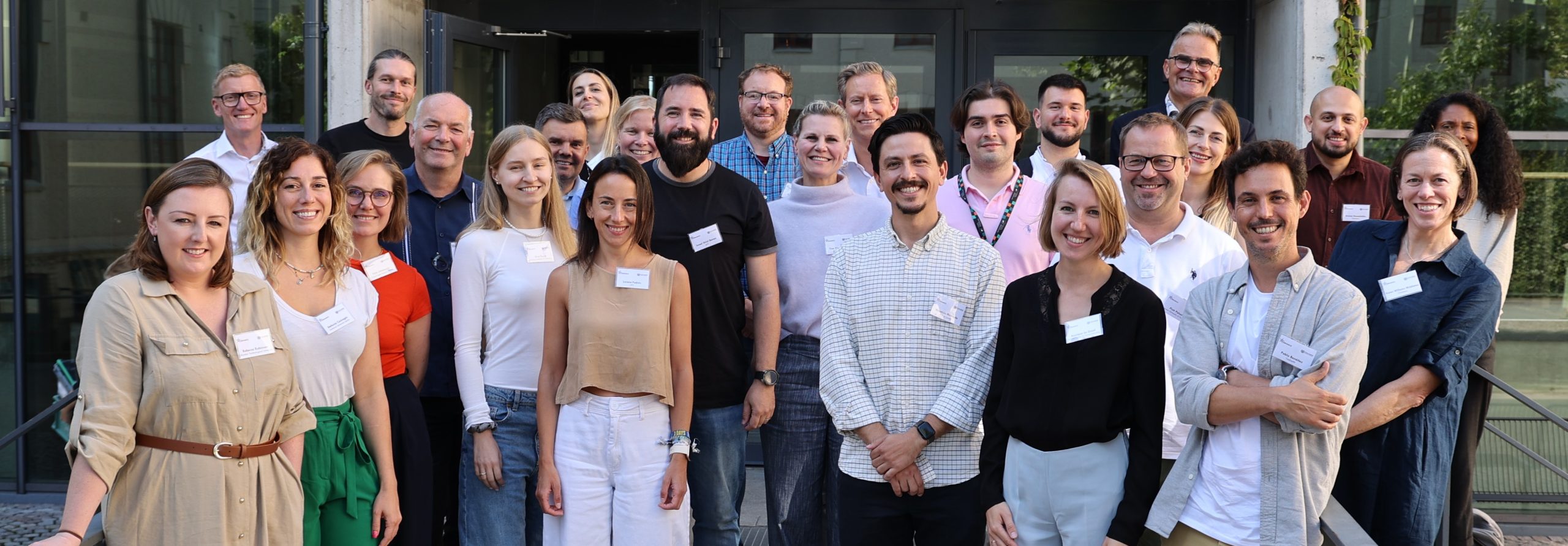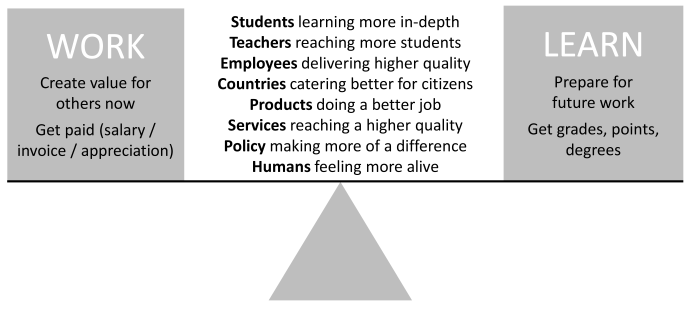Oberoende forskningsinstitut för
Everyday Learning
Vi gör forskning tillgänglig som hjälper människor att hitta nya sätt att bidra, utvecklas och förbättras i arbetslivet, inom utbildning och i livet i allmänhet. Via vardagslärande får ni stärkt motivation, passion och kvalitet i det ni gör. Vår webbplats är för medarbetare i alla sektorer - vi erbjuder många gratis resurser som du kan använda idag.
Och du - missa inte vår uppskattade kostnadsfria utbildning för "lagom"-vetenskapligt vardagslärande, läs och anmäl dig här:
Bli del av en gemenskap och träffa andra som ägnar sig åt vardagslärande
Vi tror på communities som ett sätt att få utveckling och lärande att ske varje vecka, att göra skillnad varje dag. Därför leder vi olika communities för lärare, anställda och andra. Läs mer och se om någon av dem passar dig!

Alla våra forskningsområden
Vi erbjuder många olika kostnadsfria utbildningsprogram inom våra forskningsområden för att hjälpa människor att uppnå en bättre balans mellan arbete och lärande i vardagen. Gå till vår utbildningssektion för att se vilka utbildningsprogram som finns tillgängliga för närvarande.
Möt våra forskare
På Everyday Institute är vi flera forskare som arbetar med vardagslärande, vardagsforskning, vardagligt värdeskapande och vardagskvalitet.
Martin Lackéus
VardagsforskareForskare om hur man kan göra människor mer entreprenöriella genom olika utbildningsinsatser.
Jonas Boström
VardagsforskareForskare inom kvalitetsutveckling, med fokus på hälso- och sjukvård/socialt arbete.

Vad är Work-Learn Balance?
Försök att kombinera två saker varje vecka: att hjälpa andra (work) och att utveckla dig själv (learn). Den blandningen är vad vi kallar work-learn balance. Det skapar mening, momentum och förbättringar i dina prestationer, samtidigt som det gör lärandet praktiskt, personligt och mer oförglömligt. Allt vi gör handlar om att främja denna balans.
Vad folk säger om oss
"Att kombinera veckovis värdeskapande med reflektion förändrade min klass; engagemanget ökade, tystare elever bidrog och uppgifterna blev meningsfulla, där feedback blev bränsle för tillväxt."
Sara Lindholm
Lärare"Balans mellan arbete och lärande omformulerade våra sprintar; varje funktion riktar in sig på verkligt användarvärde, och retrospektiv personlig utveckling, vilket gör produktivitet och lärande ömsesidigt förstärkande snarare än konkurrerande prioriteringar."
Daniel Ekström
Ledare inom mjukvara"Att utforma uppgifter som hjälper patienter idag samtidigt som de tränar morgondagens färdigheter gav vår klinik energi; deltagarna dokumenterade känslor, arbetade snabbare och levererade mätbara förbättringar i flödet av besök."
Noura Haddad
Lärare inom vård"Istället för verklighetsfrånvända workshops strukturerar vi utmaningar som hjälper kollegor; feedback kommer omedelbart, självförtroendet växer och organisationen ser läranderesultat i form av bättre servicemått."
Priya Menon
Customer Experience Lead”Eleverna intervjuar samarbetspartners i samhället, bygger prototyper och reflekterar över känslor varje vecka; närvaron förbättrades, betygen steg och blyga elever upptäckte styrkor genom praktiska, meningsfulla och värdeskapande uppgifter.”
Johan Bäck
Gymnasielärare”Genom att koppla dagliga serviceförbättringar till personliga lärandemål förändrades moralen; personalen föreslår experiment, samlar in feedback och firar framsteg offentligt, vilket skapar momentum som sprider sig mellan avdelningarna.”
Amina Kovac
Kommunal utvecklareOm du arbetar med vår forskning och vill ge oss din feedback eller bara vill säga "hej", vänligen kontakta oss!
Fotogalleri
Everyday Institute in images
